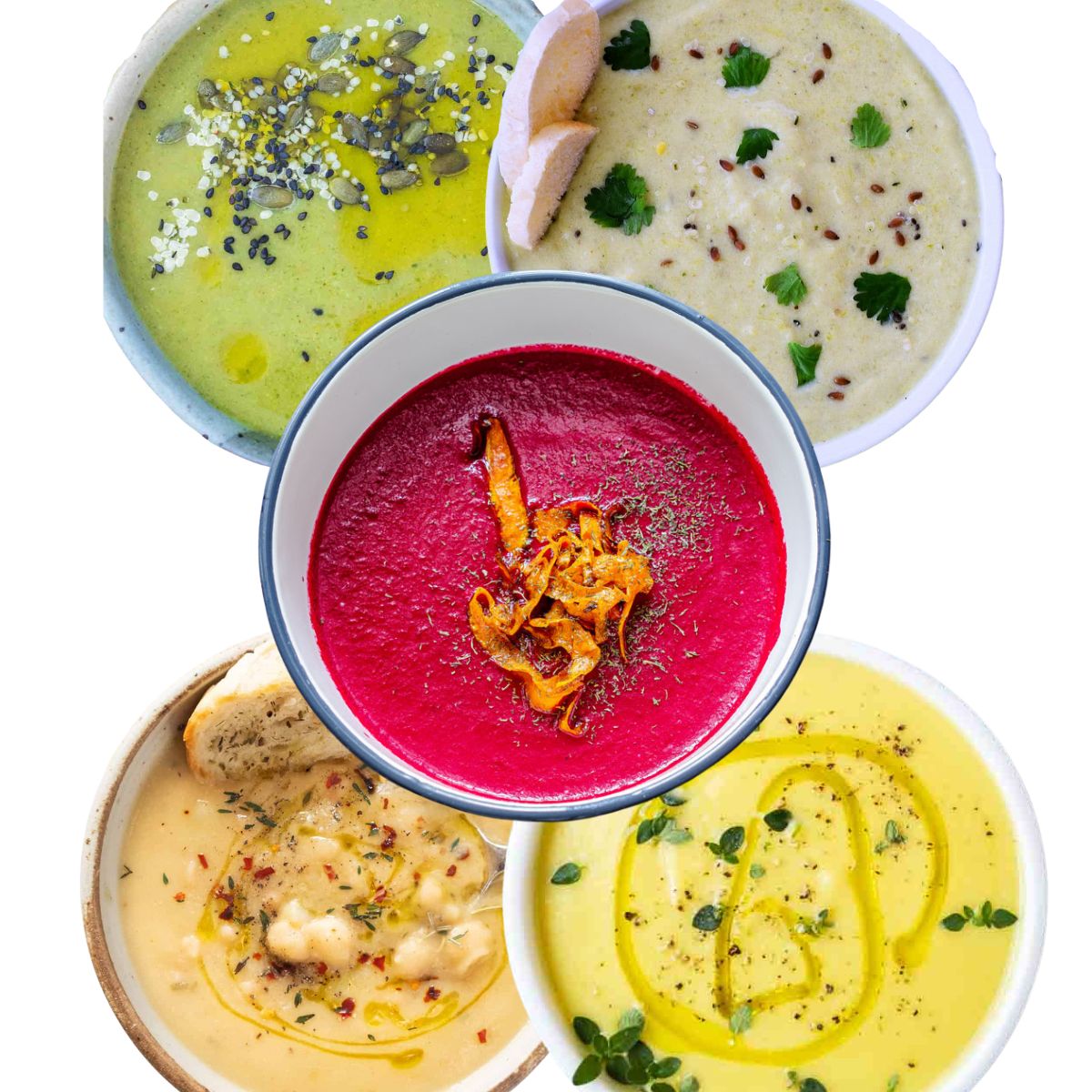The Best Fitness Apps For Every Type Of Workout (& Every Experience Level)
There's an app for every fitness goal.


Contributor
Contributor
Christie is a writer, editor, and content strategist whose work has appeared in Shape, Real Simple, Southern Living, InStyle, People, Travel + Leisure, and more.
February 14, 2023 Our editors have independently chosen the products listed on this page. If you purchase something mentioned in this article, we may It can be difficult to fit a steady workout routine into a busy schedule—but the best workout apps make exercising more convenient and affordable, no matter where you are. Rather than committing to a gym membership or attempting to create a home workout routine on your own, these apps arm you with a whole slew of instructors and classes to keep you motivated. Below, find our picks for the best fitness apps, with options for every experience level and workout type. New to the online fitness game? We’ve included expert advice on who these fitness apps are good for, and how to choose one you’ll stick with.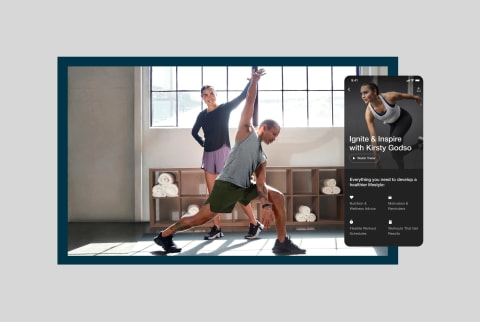
The best fitness apps of 2023:
The benefits of fitness apps
“So much of health and fitness comes down to consistency, accountability, and a well-structured program,” says Rae Reichlin, owner, founder, and head coach of Ladies Who Lift. “Using a fitness app can potentially help with all three.”
Fitness apps tend to be more affordable than a traditional gym membership, and they are easily accessible for anyone with a smartphone. Having the right fitness app allows you to squeeze in a workout even when you’re short on time, so you can stay accountable to your goals.
“Fitness apps bring the gym to you,” says Percell Dugger, NYC-based wellness consultant, certified strength coach, and founder of Fit For Us. “They’re super accessible and can be utilized by almost anyone.”
However, fitness apps typically do not offer the same comradery and energy as working out in a group setting. If you don’t enjoy exercising alone, or you respond best to physical coaching, fitness apps may not be for you.
Who are fitness apps good for?
Fitness apps are a great asset for anyone interested in following a routine, logging workouts, and documenting their progress, according to Reichlin. “It can be motivating for beginners and a reliable tool for more advanced gym-goers,” she says. Whether you're new to working out or you've felt yourself slipping into an exercise rut, fitness apps are a great way to discover new workouts, classes, and instructors to keep your routine feeling fresh and fun. With on-demand classes, you can easily pause, rewind, or repeat exercises to take each class at your own pace.
“They’re not ideal for anyone who is injured, dealing with pain, or has a physical condition that requires a Doctor’s consent,” Dugger adds.
How to choose
When deciding which app to use, consider the below factors.
Cost:
Your individual budget will impact which fitness app is right for you. However, it’s not entirely necessary to pay a high price for a fitness app. “Stay away from apps that are charging you a premium price while offering the standard content,” says Dugger.
Workout Type:
Each fitness app features its own types of exercise—and some have more variety than others. Before you sign up, consider the types of workouts you enjoy and which you are interested in trying. “The number one most important thing is the programs being offered,” says Reichlin, who suggests that you choose one with workouts that align with your specific goals.
Equipment Needed:
Keep in mind: A fitness app is only as helpful as the real-world resources you have (and the time you put into it). For instance, if you download a weightlifting app, you’ll still need access to weightlifting equipment. If you don’t have your own equipment (or access to a gym), you’ll be better off with an app that offers bodyweight exercises.
How we picked:
Some people may have goals specific to just one type of workout, but our list features fitness apps that include a variety of class types, so there’s something for just about everyone. That way, you’ll be less likely to get in a workout rut after doing the same things over and over again. Your muscles will thank you for the variety too.
While some training programs are worth paying for, there’s no need to break the bank on a pricey app unless it truly offers something you can’t get elsewhere. That’s why most of the apps on this list are reasonably priced (some are even free!).
An instructor can make or break a workout experience. With that in mind, we paid close attention to the instructors and their credentials. After all, they’re really what keep people coming back for more.
When selecting the best fitness apps, we took our own personal experience into account, as well as reviews from a variety of people.
Our picks for the best fitness apps of 2023:
Best for yoga and barre: Alo Moves

Pros:
Beautiful videosEasy-to-follow instructorsIndividual classes and seriesCons:
Limited workout types offeredNot great for beginnersSubscription cost: $20/month or $199/year
Free trial period: 14 days
Workouts offered: StrengthYogaMeditationHIITPilatesBarreSculpt
Compatible devices: AppleAndroid
An Alo Moves membership gives you access to an extensive library of videos and expert instructors. Choose from yoga, meditation, HIIT, barre, strength, sculpt, or Pilates classes—many of which are filmed in beautiful, calming settings to up the zen factor. There are even workouts to focus on specific skills like flexibility, inversions, and mobility.
With options for all experience levels, simply search for classes and programs based on duration, difficulty, equipment, and workout type. The app makes it easy to pick an individual class for whatever you feel like doing on a given day, or complete a series over the course of a few days or weeks.
There’s no free version of this fitness app, but the low monthly price makes it an affordable alternative to traditional workout studios. Plus, you can stream the workouts on your smart TV with Apple AirPlay or Chromecast.
“I use this app regularly for at-home yoga and barre classes that rival the best studios in New York. I’m a fan of Emily Sferra’s barre classes and enjoy following along with her series when I need some motivation to hit the mat. Her energy is unmatched.” — Christie Calucchia, mbg contributing writer
Best for meditation: Headspace
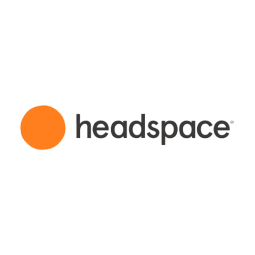
Pros:
User-friendlyApproachableQualified teachersCons:
Not individualizedFocused mostly on beginnersSubscription cost: $5.83/month or $69.99/year
Free trial period: 14 days
Workouts offered: MeditationSleepStressMindfulness
Compatible devices: AppleAndroid
Mental fitness is just as important as physical fitness. Some apps we’ve mentioned have a few meditation videos to offer, but if you’re looking for a meditation-focused option to help you relax and sleep, Headspace should be on your radar. It uses science-backed meditation and mindfulness tools to help users relax, improve focus, and sleep better.
With the app, you can play on-demand audio sessions designed to help you manage your feelings and thoughts or simply drift asleep. Sessions are led by experienced teachers with credentials in meditation, therapy, and mindfulness.
Ideal for beginners or those who don’t know where to start, Headspace has a 4.8 out of five star overall rating in the Apple app store. People say it’s user-friendly and effective. Plus, they enjoy that it has options for families and kids as well as individual adults. "Headspace introduced me to meditation and mindfulness in college. The way it taught me to look at my thoughts from a distance transformed my perspective and relationship to my feelings. Seven years later, it's still my go-to," says editorial operations manager Emily Kelleher. With guided beginner meditations and silent timers, 30-session series and one-off exercises for job interviews and acute anxiety, Headspace has something for everyone.
Advertisement
This ad is displayed using third party content and we do not control its accessibility features.
Best for beginners: Obé
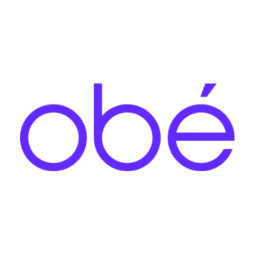
Pros:
A ton of workout types offeredWide range of class lengthsInstructors are fun and engagingCons:
Most classes are better with equipmentSubscription cost: $9.99/month or $79.99/year$25/month or $179/year
Free trial period: 7 days
Workouts offered: StrengthYogaMeditationStrength trainingHIITDanceCyclingRunningWalkingRowingPilatesKickboxingBootcampStretchingBarreSculptDance cardioMindfulness
Compatible devices: AndroidChromecastDesktopAppleTViOS
One of our favorite online workout programs, Obé has an incredible amount of variety for every experience level, beginners included. With the app membership, you’ll have access to classes from 5 to 60 minutes, with a ton of exercise types to choose from. On top of barre, bounce, boxing, dance, HIIT, sculpting, strength training, yoga, and more, there are also stretching and foam rolling videos to help you prioritize recovery, and classes designed for children and seniors. One main reason we chose Obé as best for beginners is because the instructors are upbeat, encouraging, and welcoming to all fitness levels.
Most classes can be modified to bodyweight only, but many are better with hand weights, ankle weights, resistance loops, and sliders. There’s a whole selection of bounce classes, too, which require a trampoline.
Best personal training: Future

Pros:
Individualized coachingVirtualProgress trackingCons:
ExpensiveNo immediate feedback/motivationSubscription cost: $149/month
Free trial period: 30 days
Workouts offered: YogaStrength trainingCustomized cardio
Compatible devices: AppleAndroid
With Future, you’ll connect with a real personal trainer who will build customized workouts for you based on your goals, schedule, and access to equipment. You’ll meet via FaceTime call and communicate with in-app messaging. Once you get into a workout, you’ll receive voice recordings from your coach throughout your session. Think motivational pep talks and instructions for properly nailing each exercise.
While you don’t need to have a smartwatch to use the app, if you do have one, it will sync with Future to track your workouts so you and your trainer can see you physical progress with metrics like your heart rate. Along with personal training, the app also has workouts and playlists for you to use on your own.
Another highly rated app, Future has 4.9 out of stars overall on Apple. “This exercise app is different from all the rest. I’ve tried many of them out there,” one person writes, going on to say, “This is more than just an exercise app. There’s literally someone on the other other side of the screen (or the country ;) to keep you accountable.”
Advertisement
This ad is displayed using third party content and we do not control its accessibility features.
Best free: Nike Training Club
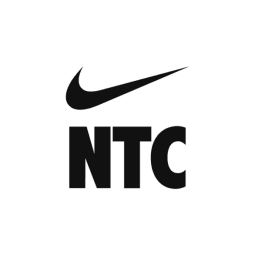
Pros:
Reliable trainersPrograms to help you meet goalsFitness and nutrition tipsCons:
No live classesNot great for beginnersSubscription cost: Free
Free trial period: N/A
Workouts offered: EnduranceMobilityStrengthYogaMeditation
Compatible devices: AppleAndroid
The Nike Training Club app offers a huge variety of workouts for no cost at all. The app is easy to navigate, with the ability to search for classes based on criteria such as exercise type, duration, and equipment needed. The app has programs that encourage you to continuously build upon previous workouts toward a specific goal. You’ll even find recipes and tips from experts to keep you motivated
Along with fan-favorite trainers such as Kirsty Godso and Tara Nicolas, you’ll find celebrity-led workouts, too. All content can be viewed on your phone or streamed onto any compatible AirPlay device. There’s even an option to download workouts to have access without wifi.
“I have used this app since April 2020. Kirsty Godso’s HIIT classes are a must if you want a serious burn with no equipment necessary. I also love Alex Silver-Fagan’s yoga classes and kickboxing with Nez Daily,” — Christie Calucchia, mbg contributing writer
Best for running: Strava
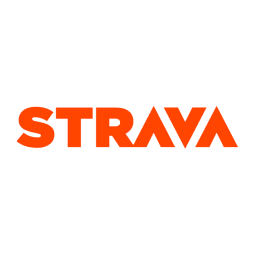
Pros:
Tracks runs, walks, hikes, bike rides, and swimsSocialHas safety location settingsCons:
Requires a paid membership for premium featuresOnly helpful for outdoor workoutsSubscription cost: $11.99/month or $79.99/year
Free trial period: 30 days
Workouts offered: CyclingRunningWalkingSwimming
Compatible devices: AppleAndroid
For trail runners, Strava is one of the best apps to track your workouts and share activities with friends. The app uses GPS technology to track your route and measures your pace, distance, and elevation. You can even add friends to your network, so they can see your latest efforts and comment or give you kudos when you post an activity.
The app has multiple safety features to keep athletes at ease. For one, it blocks the details of the start and finish points of your activity for privacy. It also has a Beacon feature that allows you to select up to three contacts to receive a text message when you start a run or bike ride. Those contacts will have access to follow your activity in real time, so someone always knows where you are. If you do love sharing the details of your workout, you can also create a Snapchat filter of your run, thanks to a recent partnership between the two brands.
Strava tracks runs, walks, hikes, bike rides, and even swims. It works with many other apps and devices, such as Garmin and the Apple watch, to keep your training synced. There’s a free version of the app that includes basic features, or you can pay for a membership that offers extras like route planning and advanced metrics.
Our commerce editor, Carleigh Ferrante, uses Strava regularly to track her own marathon training, as well as to track her friends and their progress. “I love how easy Strava is to use, and how safe I feel while using it. It gives me peace of mind knowing my key contacts have my location—especially on those early morning or evening long runs,” she says.
Advertisement
This ad is displayed using third party content and we do not control its accessibility features.
Best for weightlifting: Jefit
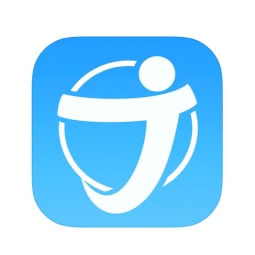
Pros:
Tracks progressPrograms workoutsEasily personalizedCons:
Too many optionsGlitchySubscription cost: Free$12.99/month; $69.99/year
Free trial period: N/A
Workouts offered: Strength trainingHIIT
Compatible devices: AppleAndroid
Jefit is a popular weightlifting app with more than 1,400 exercises and a slew of instructions to choose from. Within the app, you can track your workouts and progress based on your own individual goals. The platform counts reps, sets, and has interval timers.
It also includes workout plans, such as quick HIIT circuits and muscle-specific exercises, which can be filtered based on preferences such as the area you want to focus on, how much time you have, and your experience level.
What sets this app apart is that it has a community aspect, allowing users to interact with each other within the app. There are three membership types to choose from: the basic (free) version with ads, the $12.99 premium monthly membership, or the $70 annual membership—both of which offer premium features and no ads. There are also personal coaching plans that cost extra.
This app gets a lot of love from its community. One reviewer writes, “I am a HUGE fan of this app. I've been using it since 2010…The app is great for programming workouts, tracking progress, as specific as how many reps and weight you did of a certain exercise in a certain day, and tracking measurements, weight, and pictures.”
Best for live classes: Peloton

Pros:
Diverse instructorsEngaging class formatsGrowing variety of workoutsCons:
Many classes require expensive equipmentNeed a smart TV with the Peloton app to streamSubscription cost: $12.99/month
Free trial period: 30 days
Workouts offered: StrengthYogaMeditationCyclingRunningRowingBootcampStretching
Compatible devices: AppleAndroidFireRoku
While the company is best known for its stationary bikes, Peloton also sells treadmills and rowing machines, and has an app with a huge variety of workouts—many with no equipment necessary. The selection includes yoga, meditation, and strength training classes, and you can also stream classes while using equipment from other brands.
Peloton boasts live and on-demand classes taught by a diverse group of instructors with various specialties. If you want a fitness app with a true community feel, it’s a great choice.
The Peloton community is dedicated, giving the app a 4.9 overall rating on Apple. The common sentiment can be summed up by this one review: “I can’t tell you how great a resource this has been for me and my fitness journey. When I can’t motivate myself to go to the gym or get outside for a walk, it’s easy to talk myself into a 20 minute workout in my own living room. I feel stronger and I’m learning so much.”
Advertisement
This ad is displayed using third party content and we do not control its accessibility features.
Best for dance cardio: The Sculpt Society

Pros:
Quick workoutsLive and on-demand classesPrenatal and postnatal programsCons:
Takes time to learn class formatsNot personalizedSubscription cost: $19.99/month or $179.99/year
Free trial period: 7 days
Workouts offered: YogaMeditationStretchingDance cardioLow-impact sculpting
Compatible devices: AppleAndroid
For engaging, quick workouts you can do at home with little-to-no equipment, check out The Sculpt Society (TSS). Created by former professional dancer and celebrity trainer Megan Roup, the app includes more than 400 on-demand workouts and multiple live classes every week.
Its classes include low-impact exercises and easy-to-follow dance cardio. One of the app’s more notable features is its “Quickie Workouts” that are, as the name suggests, short in length. These range from five to 25 minutes and can be completed on their own or stacked together, depending on what you want out of your workout.
Some classes focus on specific body parts like arms and abs while others are full body. The app also offers prenatal and postnatal programs, designed to help expecting and new moms stay active safely.
While all of the workouts can be done using no equipment, you might want a mat, light hand weights, light ankle weights, short resistance bands, sliders, and a Pilates ball on hand to get the most out of the exercises.
“Over the past few months, Roup’s signature “Quickie Workouts” have become staples in my at-home workout routine. I love doing a short core or arm workout after a run, and when I’ve had a long day and want to get my energy up, I try a dance cardio class. The dance-forward classes are a little out of my comfort zone, but they always end up putting a smile on my face and getting my heart rate up.” — Christie Calucchia, mbg contributing writer
FAQ:
What is the most effective fitness app?
Each fitness app on this list is useful in its own right, but the most effective fitness app is one that allows you to progress each week, according to Reichlin. “Doing random workouts is obviously better than not moving at all, but following a program designed by fitness professionals is the best way to accomplish your goals,” she says.
Are fitness apps worth it?
Whether a fitness app is worth the cost comes down to how much you’ll use it and what your individual goals are. “Is [using a fitness app] vital? Will you not make progress without one? Absolutely not,” she says. “But since most people have their phone on them at the gym anyways, an easy-to-use fitness tracker can be a huge benefit.”
What is the best fitness app for beginners?
We recommend Obé for beginners, but many of the options on our list have beginner-friendly content, including The Sculpt Society, Peloton, Alo Moves, and others.
The takeaway.
Fitness apps are a great way to stay motivated and accountable to your health and wellness goals. When choosing the right fitness app, think about what workouts you like to do or what types of exercises you’d like to try. Then consider what equipment you have access to and how much money you’re willing to spend on an app before downloading one. And, if you’re just starting your home gym journey, check out our picks for the best home gym equipment of 2023, from a CPT.

 Lynk
Lynk 


















